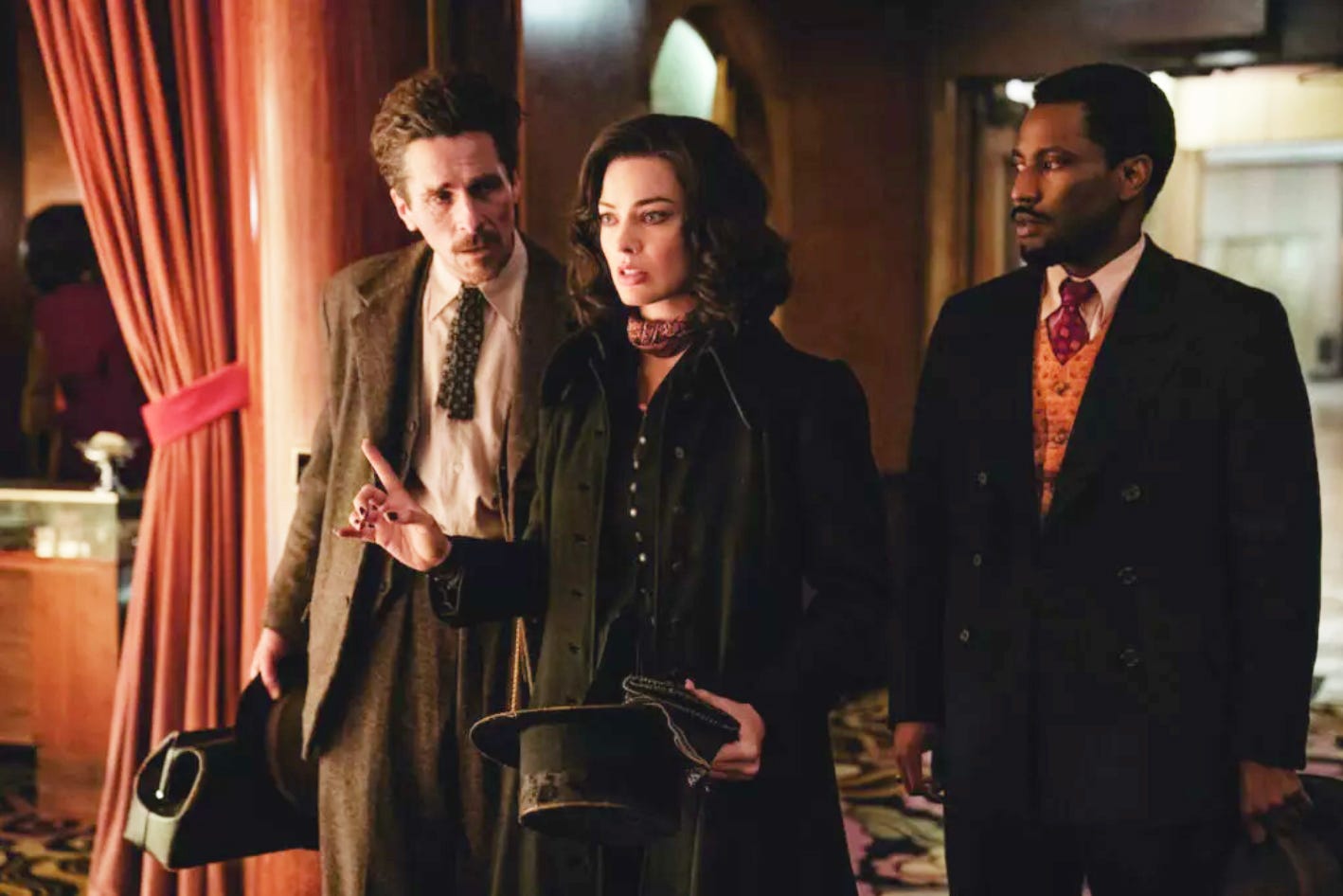‘Amsterdam’ Review
Amsterdam’s heart might be in the right place—a farce about incipient fascism feels fairly timely—but the execution is lacking. Both a tonal mishmash in which every actor feels like they’re in a slightly different movie and also saddled with an unnecessarily complicated narrative structure, the whole thing is just slightly off.
It’s a shame, because writer/director David O. Russell is usually pretty good at balancing tones and mixing genres. Silver Linings Playbook deftly combined comedy and drama and sweet goofiness for something like a slightly more adult Little Miss Sunshine. Three Kings melded comedy and action with political agitprop to winning effect. And I remain deeply fond of American Hustle, a movie that maybe have been slightly extravagant but to great success since Russell let a quartet of our finest actors—Christian Bale, Amy Adams, Bradley Cooper, and Jennifer Lawrence—off their leashes to go a little bit nuts.
Amsterdam is at its best when it leans into similar nuttiness. You can imagine Christian Bale practically rubbing his hands together with glee when offered the part of Burt Berendsen, a doctor with one eye, crippled by chronic pain, and prone to fits of nebbishy awkwardness. The awkwardness is intrinsic but the glass eye and the pain were earned in the trenches of the First World War, where he met strait-laced soldier Harold (John David Washington) and free-spirited artist, confidence woman, and, possibly, spy, Valerie (Margot Robbie).
The three of them make a pact to always be the best of friends, but at movie’s start that pact has been broken; Burt and Harold live in New York City, where they have been asked by the daughter of their former general to investigate his death. She thinks it’s murder, a suspicion given more credence when she herself is murdered. But who is knocking off beloved generals from the Great War, and why?
The answer to that question is convoluted and long and bittersweet, but mostly just convoluted, involving spies and high society and eugenics and the mingling of business and political and military interests in decidedly ugly ways. Russell has never shied away from introducing thorny politics into his entertainment, as anyone who remembers Mark Wahlberg’s torture-by-oil scene in Three Kings will know, but I don’t think what Russell’s getting at—a shadowy cabal of monied interests attempting to spur business or, failing that, profit from war—quite works as a metaphor for, or critique of, our current populism-addled moment.
Regardless of the political confusion at the heart of the movie, the whole thing still might have succeeded if not for the internal clash of styles. When it works, it’s delightful. Robbie has charm and wit as a manic pixie spy girl, while Mike Myers and Michael Shannon have great chemistry as a pair of undercover agents with the souls of bird watchers. Anya Taylor-Joy and Rami Malek make a delightfully odd couple, almost alien-looking with their pronounced cheekbones and elongated faces serving as a stand-in for all high society.
The problem is that all of these comic performances run headfirst into a wall of straight men. As rubber-faced and manic as Bale is in this movie, Washington is the opposite: his face a mask, his eyes barely moving, the barest hints of a smile creeping at the corner of his mouth. He goes beyond straight, to steel man. Then there’s Robert De Niro, who is playing an almost-but-not-actually comically stiff former general, and Taylor Swift, who is sorely out of her dramatic depth as the daughter who kicks off the whole mystery. There’s something just off about all of them, they’re all just a little too serious for what amounts to a Coens-esque romp through the interwar period.
Russell’s film calls to mind another picture about the interwar period that mixed styles and tones to highlight the crushing absurdity of authoritarian backsliding: Wes Anderson’s The Grand Budapest Hotel. Anderson’s dollhouse sensibilities and slightly alternate-reality setting of Zubrowka serve to both distance us from the metaphor and provide a sort of funhouse mirror by which we can see ourselves, but not quite ourselves, reflected. However, the dollhouse hides a darkness, and where that picture posited the limits of the virtues held by the characters to hold the coming darkness at bay, Amsterdam is almost saccharine in its suggestion that friendship and decency and public honesty can win the day.



